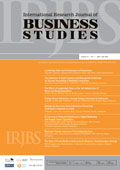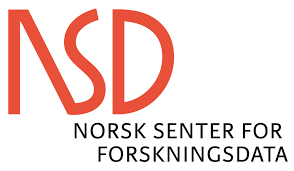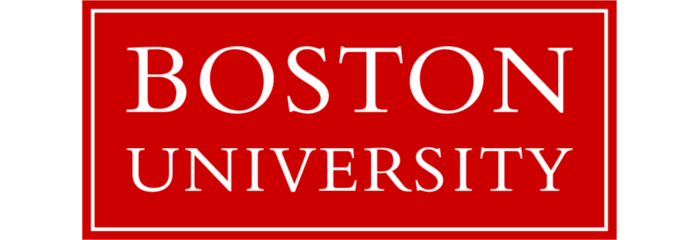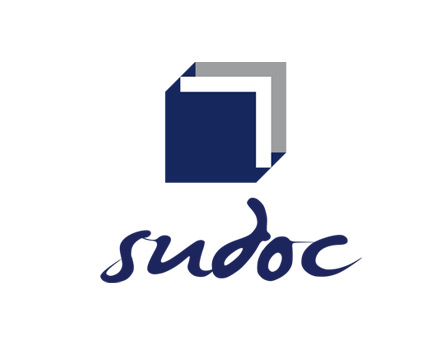Article Metrics |
|
|
Does Innovation Affect Company Performance? Exploring the Mediation Effects of Management Accounting Information Systems
Abstract
This study attempt to determine the direct effect of innovation on company performance and its indirect effect through Management Accounting Information Systems (MAIS) as an mediating/intervening variable. Samples were managers in the manufacturing industry that produces Crude Palm Oil (CPO) operating in Riau Province. Data collected through questionnaires and processed using SEM-PLS. The results found that innovation affects firm performance. Management Accounting Information Systems mediates the effect of innovation and firm performance. Research on MAIS as intervening variable in the palm oil industry was first carried out especially in Indonesia. Innovations made by company through a good Management Accounting Information System will improve the performance of CPO producing company.
Keywords: Company performance, Innovation, Management accouting information systems.
* Departement of Accounting, State Islamic University of Sultan Syarif Kasim Riau Jalan HR. Soebrantas Km. 15 No. 155, Panam, Kec. Tampan, Kota Pekanbaru, Riau, 28293
Full Text:
References
Abdallah, A. A. J. (2014). The Impact of Using Accounting Information Systems on the Quality of Financial Statements Submitted to the Income and Sales Tax Department In Jordan. European Scientific Journal, 9(10), 41–48. https://doi.org/https://doi.org/10.19044/esj.2013.v9n10p%25p
Abernethy, M. A., & Guthrie, C. H. (1994). An Empirical Assessment of the Fit between Strategy and Management Information System Design. , Accounting and Finance, 34(2), 49–66. https://doi.org/https://doi.org/10.1111/j.1467-629X.1994.tb00269.x
Ajibolade, S. O. (2013). Management Accounting Systems Design and Company Performance in Nigerian Manufacturing Companies : A Contingency Theory Perspective. British Journal of Arts and Social Sciences, 14, 228–244. https://doi.org/https://doi.org/10.1080/00014788.1997.9729553
Al-mawali, H. (2013). Performance Consequences of Management Accounting System Information Usage in Jordan. Business and Economic Horizons, 9(1), 48–57. https://doi.org/10.15208/beh.2013.3
Anderson, N., & Potočnik, K. (2014). Innovation and Creativity in Organizations : A State-of-the-Science Review , Prospective Commentary , and Guiding Framework. Journal of Management, 40(5), 1297–1333. https://doi.org/10.1177/0149206314527128
Baron, R. M., & Kenny, D. A. (1986). The Moderator-Mediator Variable Distinction in Social Psychological Research: Conceptual, Strategic, and Statistical Considerations. Journal of Personality and Social Psychology, 51(6), 1173–1182. https://doi.org/10.1037//0022-3514.51.6.1173
Bisbe, J., & Otley, D. (2004). The Effects of the Interactive Use of Management Control Systems on Product Innovation. Accounting, Auditing & Accountability Journal, 29, 709–737. https://doi.org/10.1016/j.aos.2003.10.010
Bromwich, M. (1990). The Case for Strategic Management Accounting: the Role of Accounting Information for Strategy in Competitive Markets. Accounting, Organizations, and Society, 15(l), 27–46. https://doi.org/10.1016/0361-3682(90)90011-I
Chenhall, R. H. (2003). Management Control Systems Design Within its Organizational Context: Findings from Contingency-Based Research and Directions for The Future. Accounting, Organizations and Society, 28, 127–168.
Chenhall, R. H., & Morris, D. (1986). and Impact of Structure , Environment , and Interdependence on the Perceived Usefulness of Management Accounting Systems. American Accounting Association, 61(1), 16–35. Retrieved from http://www.jstor.org/stable/247520
Chia, Y. M. (1995). Decentralization, Management Accounting System (MAS) Information Characteristics and Their Interaction Effects on Managerial Performance. Journal of Business Finance & Accounting, 22(6), 811–830. https://doi.org/https://doi.org/10.1111/j.1468-5957.1995.tb00390.x
Chong, V. K., & Chong, K. M. (1997). Strategic Choices , Environment Uncertainty and SBU Performance : A Note on the Intervening Role of Management Accounting Systems. Accounting and Business Research, 27(4), 268–276. https://doi.org/10.1080/00014788.1997.9729553
Damanpour, F. (1991). Organizational Innovation: A Meta-Analysis of Effects of Determinants and Moderators. The Academy of Management Journal, 34(3), 555–590. https://doi.org/DOI: 10.2307/256406
Damanpour, F., & Evan, W. M. (1984). Organizational Innovation and Performance : The Problem of “Organizational Lag.” Administrative Science Quarterly, 29(3), 392–409. https://doi.org/DOI: 10.2307/2393031
Davila, T. (2000). An Empirical Study on the Drivers of Management Control Systems’ Design in New Product Development. Accounting, Organizations and Society, 25, 383–409. https://doi.org/10.1016/S0361-3682(99)00034-3
Davis, G. F., & Cobb, J. A. (2010). Resource Dependence Theory : Past and future. Research in the Sociology of Organizations, 28, 21–42. https://doi.org/10.1108/S0733-558X(2010)0000028006
Evangelista, R., Sandven, T., Sirilli, G., & Smith, K. (1998). Measuring Innovation in European Industry. International Journal of the Economics of Business, 5(3), 311–333. https://doi.org/http://dx.doi.org/10.1080/13571519884413
Gani, L., & Jermias, J. (2006). Investigating the Effect of Board Independence on Performance Across Different Strategies. The International Journal of Accounting, 41, 295–314. https://doi.org/10.1016/j.intacc.2006.07.009
Gerloff, E. A., Muir, N. K., & Bodensteiner, W. D. (1991). Three Components of Perceived Environmental Uncertainty: An Exploratory Analysis of the Effects of Aggregation. Journal of Management, 17(4), 749–768. https://doi.org/https://doi.org/10.1177/014920639101700408
Gordon, L. A., & Narayanan, V. K. (1984). Management Accounting Systems Perceived Environmental Uncertainty and Organization Structure: an Empirical Investigation. Accounting, Organizations, and Society, 9(1), 33–47. https://doi.org/10.1016/0361-3682(84)90028-X
Govindarajan, V. (1984). Appropriateness of Accounting Data in Performance Evaluation: an Empirical Examination of Environmental Uncertainty as an Intervening Variable. Accounting, Organizations, and Society, 9(2), 125–135. https://doi.org/https://doi.org/10.1016/0361-3682(84)90002-3
Hadjimanolis, A., & Dickson, K. (2000). Innovation Strategies of SMEs in Cyprus, a Small Developing Country. International Small Business Journal, 18(4), 62–79. https://doi.org/DOI: 10.1177/0266242600184004
Hair, J. F., Black, W. C., Babin, B. J., & Anderson, R. E. (2013). Multivariate Data Analysis (Seventh Ed). Pearson New International Edition.
Hammad, S. A., Jusoh, R., & Ghozali, I. (2013). Decentralization, Perceived Environmental Uncertainty, Managerial Performance and Management Accounting System Information in Egyptian Hospitals. International Journal of Accounting and Information Management, 21(4), 314–330. https://doi.org/10.1108/IJAIM-02-2012-0005
Helfert, Erich A. 1996. Teknik Analisis Keuangan. Jakarta: Erlangga.
Hurley, R. F., & Hult, G. T. M. (1998). Innovation, Market Orientation, and Organizational Learning: An Integration and Empirical Examination. Journal of Marketing, 62(3), 42–54. https://doi.org/10.2307/1251742
Jankala, S, 2010, Role of Interactive Control Systems and Foresight in Competitive Dynamics of Business, A paper Presented in 33th Europian Accounting Association (EAA) 33th, Istambul, Turki.
Jennings, P., & Beaver, G. (1997). The Performance and Competitive Advantage of Small Firms: A Management Perspective. International Small Business Journal, 15(2), 63–75. https://doi.org/10.1177/0266242697152004
Jones, G. R. (2013). Organizational Theory, Design , and Change (Seventh Ed). Pearson.
Kaplan, R. S., 2009. Conceptual foundation s of the Balanced Scorecard. Handbook of Management Accounting Research, 3, 1253-1269.
Kaplan, R. S., & Norton, D. P., 2001. The Strategy-Focused Organization: how Balanced Scorecard companies thrive in the new business environment. Boston, MA: Harvard Business School Press.
Kock, N. (2011). Using WarpPLS in e-Collaboration Studies : Mediating Effects , Control and Second Order Variables , and Algorithm Choices. Nternational Journal of E-Collaboration, 7, 1–13. https://doi.org/10.4018/jec.2011070101
Langfield-smith, K. (2007). A Review of Quantitative Research in Management Control Systems and Strategy. In C. Chapman, A, Hopwood, and M. Shields (Eds.), Handbook in Management Accounting (Vol. 2). Oxford: Elsevier. https://doi.org/10.1016/S1751-3243(06)02012-8
Lau, C. M., & Sholihin, M. (2005). Financial and Nonfinancial Performance Measures : How Do They Affect Job Satisfaction ? The British Accounting Review, 37, 389–413. https://doi.org/10.1016/j.bar.2005.06.002
Lichtenthaler, U. (2016). Toward an Innovation-based Perspective on Company Performance. Management Decision, 54(1), 66–87. https://doi.org/10.1108/MD-05-2015-0161
Mia, L., & Chenhall, R. H. (1994). The Usefulness of Management Accounting Systems Functional Differentiation and Managerial Effectiveness. Accounting, Organizations and Society, 19(1), 1–13. https://doi.org/10.1016/0361-3682(94)90010-8
Mia, L., & Clarkef, B. (1999). Market Competition , Management Accounting Systems and Business Unit Performance. Management Accounting Research, 10, 137–158. Retrieved from http://www.idealibrary.com
Musmini, L.S., 2003. Pengaruh Intensitas Kompetisi Pasar dan Sistem Akuntansi Manajemen terhadap Kinerja Unit Bisnis. Thesis (tidak dipublikasikan), Program PascaSarjana UGM, Jogjakarta
Kurnianingsih, R, dan Indriantoro, Nur, 2001, Pengaruh Sistem Pengukuran Kinerja dan Sistem Penghargaan terhadap keefektifan TQM (Study Empiris pada Perusahaan Manufaktur di Indonesia), The Indonesian Journal of Accounting Research, Vol 4(1)
Ndubisi, N. O., & Capel, C. M. (2015). Innovation Strategy and Performance of International Technology Services Ventures: The Moderating Effect of Structural Autonomy. Journal of Service Management, 26(4), 548–564. https://doi.org/10.1108/JOSM-04-2015-0118
Otley, D. T. (1980). The Contingency Theory of Management Accounting: Achievement and Prognosis. Accounting, Organizations and Society, 5(4), 413–428. https://doi.org/https://doi.org/10.1016/0361-3682(80)90040-9
Perkebunan Sawit Riau Terluas di Indonesia. (2015). AntaraNews.com
Porter, M. E. (2008). Competitive Advantage: Creating and Sustaining Superior Performance. Simon and Schuster. Com.
Ratmono, Dwi. Nahartyo, Ertambang, 2012, Examining Mediating and Moderating Models on the Relationship Among Management Control System, Innovations, and Performance, The Indonesian Journal of Accounting Research, Vol. 15(1). DOI: http://doi.org/10.33312/ijar.249
Rosenbusch, N., Brinckmann, J., & Bausch, A. (2011). Is innovation always beneficial? A Meta-Analysis of the Relationship Between Innovation and Performance in SMEs. Journal of Business Venturing, 26(4), 441–457. https://doi.org/10.1016/j.jbusvent.2009.12.002
Terziovski, M. (2002). Achieving Performance Excellence Through an Integrated Strategy of Radical Innovation and Continuous Improvement. Measuring Business Excellence, 6(2), 5–14. https://doi.org/10.1108/13683040210431419
Ulusoy, G., Kaylan, A. R., Bilgiç, T., & Payzın, A. E. (2001). Technology Management Process of the Part and Component Suppliers in the Turkish Automotive Industry. Technology Management, 5(4), 245–260.
Van der Stede, W. A., Chow, C. W., & Lin, T. W. (2006). Strategy, Choice of Performance Measures, and Performance. Behavioral Research in Accounting, 18, 185–205.
Weerawardena, J. (2003). The Role of Marketing Capability in Innovation-based Competitive Strategy. Journal of Strategic Marketing, 11(1), 15–35. https://doi.org/10.1080/0965254032000096766
Wild, Jhon. J, K. R. Subramanyam, 2010, Analisis Laporan Keuangan, Salemba Empat, Jakarta.
Copyright (c) 2020 INTERNATIONAL RESEARCH JOURNAL OF BUSINESS STUDIES
International Research Journal of Business Studies has been covered by the following services: | ||||||||||||||||||||||||
|




















